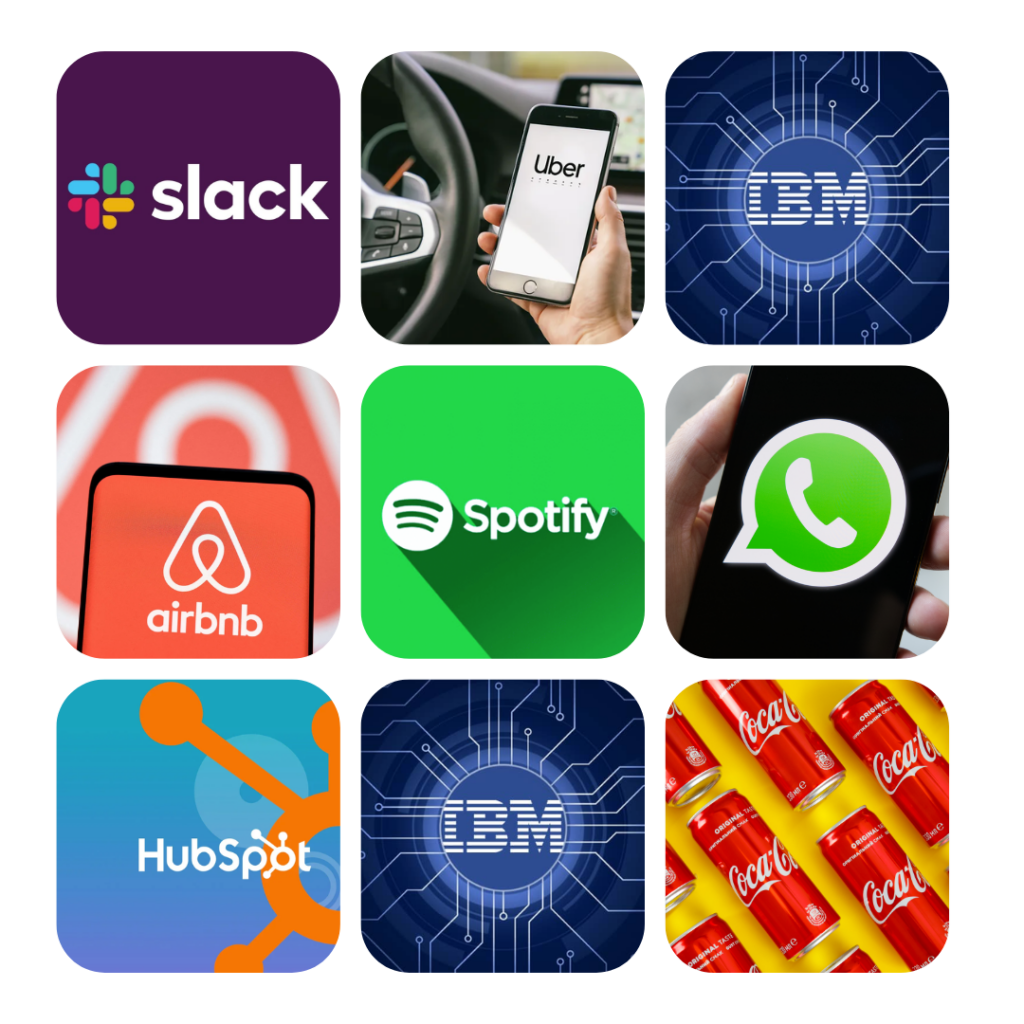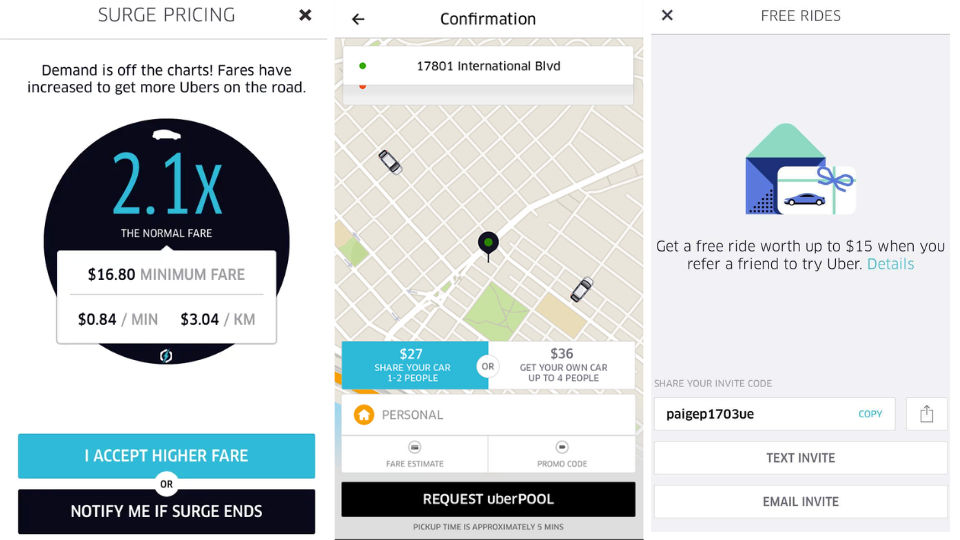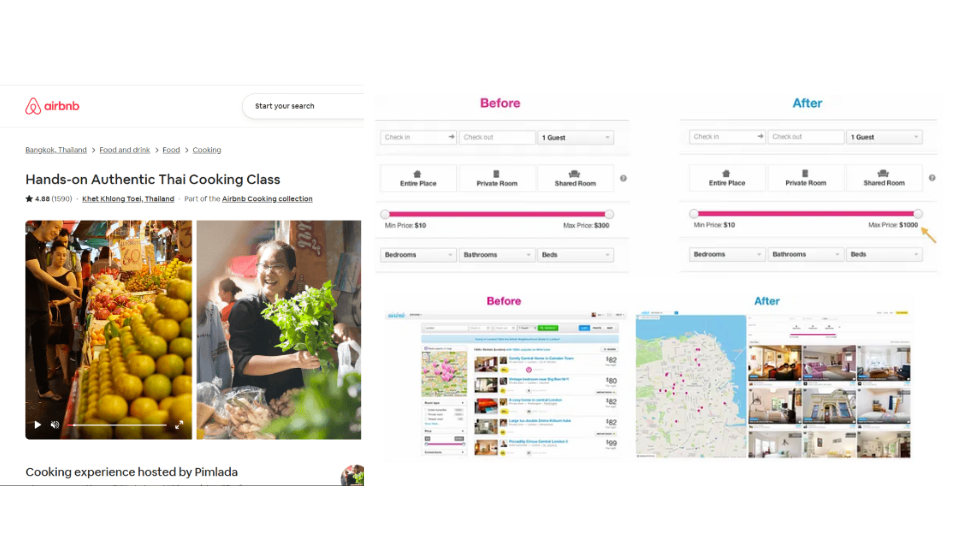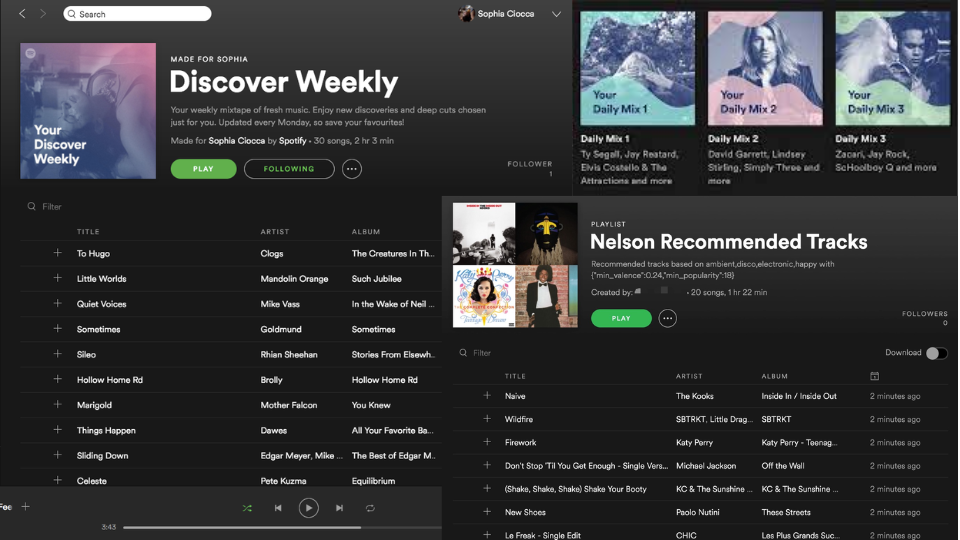
In the age of rapid technological advancements and changing consumer behaviors, companies like Uber, Spotify, and Airbnb have emerged as pioneers in their respective industries. These disruptors have not only revolutionized their markets but have also demonstrated exceptional growth strategies.
By analyzing their early growth strategies, we can uncover valuable lessons that can be applied to other businesses seeking accelerated growth today. In this article, we will explore five growth lessons from Uber, Spotify, and Airbnb, diving deeper into each lesson with relevant examples.
Read the full story: Airbnb, Uber, Spotify, HubSpot, Etsy, Slack, WhatsApp and more. The strategies they used from early start to scale-up!

1. Embrace a Culture of Constant Testing and Learning
Uber, Spotify, and Airbnb recognize the value of continuous learning through experimentation. They prioritize creating an environment where employees are encouraged to explore new ideas, test hypotheses, and learn from both successes and failures. This culture of experimentation allows them to iterate quickly, adapt to changing market dynamics, and identify growth opportunities.
For example, Uber’s success is partly attributed to its willingness to experiment with different service offerings and business models. The company initially started as a high-end black car service but soon expanded into various segments like UberX, UberPOOL, and UberEATS. By experimenting with different offerings and learning from user feedback, Uber refined its services to cater to a broader customer base and maximize growth potential.

Other remarkable experiments by Uber are the Surge Pricing Experiment, where they experimented with dynamically adjusting prices based on supply and demand, and then later on further tested on adjusting messaging each public. In an effort to reduce costs and increase efficiency, Uber introduced UberPOOL as an experiment. This feature allowed riders traveling in the same direction to share a ride and split the cost. The experiment aimed to test the viability and user acceptance of shared rides, and it eventually became a successful offering that contributed to Uber’s growth.
Airbnb also leveraged experimentation for growth since the very start. Among the many experiments AirBnb runs at any given time, one experiment from their early days exemplifies how they apply an experimentation mindset not only to improve conversions but to provide an overall superior experience for hosts and guests. Recognizing the importance of high-quality photos in attracting guests, Airbnb conducted an experiment where they offered professional photography services to hosts. The experiment aimed to determine whether professional photos could significantly impact booking rates and improve the overall user experience. The results showed that listings with professional photos had higher booking rates, leading Airbnb to incorporate professional photography as a standard offering.

To expand beyond accommodations, AirBnb experimented with the Experiences feature. This allowed hosts to offer unique activities and experiences to travelers, ranging from cooking classes to city tours. The experiment aimed to diversify Airbnb’s offerings and provide users with a more comprehensive travel experience. The success of the Experiences feature led to its integration as a core part of Airbnb’s platform. Today, AirBnb runs over 500 tests consecutively to improve every aspect of their community’s journey.
Spotify’s growth trajectory is also filled with constant experimentation. A note-worthy example is their personalized playlists. Spotify continuously experiments with personalized playlists to enhance user engagement and satisfaction. They use machine learning algorithms to analyze user listening behavior and preferences, and then create curated playlists tailored to individual tastes. This experiment aimed to test the impact of personalized recommendations on user retention and engagement. The success of personalized playlists became a hallmark feature of Spotify’s platform.

Another interesting experiment was the podcast expansion. Recognizing the growing popularity of podcasts, Spotify conducted experiments to expand its podcast offerings. They acquired podcast networks and exclusive content, such as The Joe Rogan Experience and The Michelle Obama Podcast, to attract new users and increase engagement. These experiments helped Spotify become a significant player in the podcasting industry and diversified its content portfolio.
These examples highlight how Uber, Airbnb, and Spotify continuously experiment with new features, services, and pricing strategies to enhance their offerings, attract users, and drive growth. By conducting these experiments and leveraging the insights gained, these companies have been able to iterate and optimize their platforms, ultimately contributing to their remarkable success.
2. Make Data-Driven Decisions:
3. Encourage Risk-Taking and Fail Fast
Innovation and growth often go hand in hand with risk-taking and a willingness to embrace failures as valuable learning experiences. Companies that encourage risk-taking and embrace the concept of failing fast are better positioned to drive innovation, adapt to market dynamics, and achieve sustainable success. This holds true for industry disruptors like Uber, Airbnb, and Spotify. These companies have fostered cultures that not only tolerate failure but actively encourage employees to take risks and learn from their mistakes.
Uber has fostered a culture that encourages risk-taking and embracing failures as learning opportunities. The company understands that innovation requires taking calculated risks and acknowledges that not all experiments will yield positive outcomes. Uber empowers its employees to explore new ideas, test hypotheses, and iterate quickly. The company embraces the concept of “failing fast,” which means acknowledging failures early, learning from them, and pivoting accordingly. This approach is exemplified by Uber’s willingness to experiment with different service offerings and business models.
Airbnb empowers its employees to challenge the status quo and think creatively. The company encourages teams to experiment with new features, offerings, and marketing strategies. They understand that not every experiment will be successful, but the key is to fail fast and learn from the outcomes. This mindset is reflected in Airbnb’s growth journey, where they faced initial challenges in building trust among users. However, by iterating on their platform, implementing user feedback, and fine-tuning their offerings, Airbnb was able to overcome obstacles and achieve exponential growth.
Spotify’s data-driven approach plays a crucial role in their risk-taking mindset. By analyzing user data, engagement metrics, and feedback, Spotify gains insights into what resonates with users and what doesn’t. This knowledge allows them to iterate quickly and make data-informed decisions. Spotify’s experimentation mindset is evident in their continuous A/B testing of new features and interface changes.
5. Foster Cross-Functional Collaboration
An experimentation mindset thrives in a collaborative environment. Uber, Spotify, and Airbnb emphasize cross-functional collaboration, bringing together teams from different disciplines to ideate, experiment, and learn together. This collaboration ensures diverse perspectives, encourages knowledge sharing, and leads to innovative solutions.
Airbnb recognizes the value of cross-functional collaboration in delivering a seamless user experience and driving business growth. The company promotes a collaborative environment by encouraging teams from different functions, such as engineering, design, marketing, and customer support, to work together on cross-functional projects. For instance, when launching new features or enhancing the platform’s usability, cross-functional teams collaborate to ensure that all aspects are considered, from the technical implementation to the marketing and customer support requirements. Airbnb also fosters collaboration through regular cross-functional meetings, knowledge-sharing sessions, and team-building activities. By fostering collaboration, Airbnb leverages the collective intelligence of its teams to deliver innovative solutions and meet the evolving needs of its users.
Spotify places a strong emphasis on cross-functional collaboration, recognizing its role in driving innovation and delivering a superior user experience. The company encourages employees from different disciplines, including engineering, design, data science, and content curation, to work together in cross-functional teams. These teams collaborate closely to develop and refine Spotify’s product offerings, ensuring seamless integration of technology, design, and content. Additionally, Spotify promotes a culture of transparency and open communication, where teams are encouraged to share their knowledge, ideas, and insights. This collaborative approach enables Spotify to harness the diverse expertise within the organization and continuously enhance its music streaming platform.
Uber has successfully fostered cross-functional collaboration by breaking down silos and encouraging open communication and knowledge sharing across departments. The company promotes a culture of teamwork and collaboration, where individuals from different functions work together to solve complex problems. For example, Uber’s operations team collaborates closely with the product team to identify areas for improvement and develop innovative features that enhance the user experience. Furthermore, cross-functional teams are formed to tackle specific projects or initiatives, ensuring that diverse perspectives and expertise are incorporated. By fostering collaboration, Uber maximizes efficiency, promotes innovation, and drives continuous improvement across its operations.
By breaking down silos, promoting open communication, and encouraging teamwork, these companies leverage the collective intelligence and diverse skills of their teams. Businesses can learn valuable lessons from their approaches, emphasizing the need to cultivate a collaborative culture, form cross-functional teams, and provide opportunities for knowledge-sharing and collaboration.
5. Focus on Seamless User Experience:
In today’s highly competitive business landscape, delivering a seamless user experience has become paramount for companies aiming to stand out and succeed. By prioritizing user experience, companies can build strong customer loyalty, drive engagement, and ultimately achieve long-term growth. Uber, Airbnb, and Spotify are renowned for their commitment to providing seamless user experiences, setting industry benchmarks and revolutionizing their respective markets.
Uber has revolutionized the transportation industry by placing a strong emphasis on creating a seamless user experience from the moment a user opens the app to request a ride. The app’s user interface is designed to be user-friendly and straightforward, allowing users to easily request rides, track their drivers in real-time, and pay seamlessly through the app. Uber has also prioritized safety and convenience, implementing features like driver ratings, real-time ETAs, and cashless transactions. By focusing on these aspects, Uber has successfully created a seamless user experience that has disrupted the traditional taxi industry and made ride-hailing more accessible and convenient for millions of users worldwide.
AirBnb has transformed the way people travel by offering a seamless user experience in the realm of accommodation. With a user-friendly website and mobile app, Airbnb enables users to effortlessly search for unique and personalized accommodations, book their stays, and communicate with hosts. The platform provides detailed property listings with high-quality photos, transparent pricing, and user reviews, ensuring that users have all the necessary information to make informed decisions. Furthermore, Airbnb’s emphasis on trust and safety through verified profiles, secure payments, and reliable customer support has further enhanced the user experience. By prioritizing seamless interactions and trust-building, Airbnb has redefined the way people book accommodations and created a global community of travelers and hosts.
As a leader in the music streaming industry, Spotify has set the standard for delivering a seamless user experience. The platform provides a vast library of music accessible across various devices, allowing users to effortlessly discover, create, and curate personalized playlists. Spotify’s user interface is intuitive and visually appealing, with features like easy search functionality, personalized recommendations, and seamless transitions between devices. By consistently focusing on the user experience and leveraging data-driven insights to refine their recommendations and features, Spotify has cultivated a loyal user base and remained at the forefront of the music streaming industry.
In conclusion, Uber, Airbnb, and Spotify have demonstrated a strong commitment to delivering seamless user experiences, redefining their respective industries in the process. By prioritizing user-friendly interfaces, convenience, trust, and personalization, these companies have captured the hearts of millions of users worldwide. By understanding and applying the lessons learned from their strategies, businesses can strive to create exceptional user experiences and differentiate themselves in a competitive marketplace.
Back to You
The success stories of Uber, Spotify, and Airbnb provide valuable insights into the strategies and approaches that can drive accelerated growth in today’s rapidly changing business landscape.
These disruptors have not only revolutionized their industries but have also exemplified exceptional growth strategies. By analyzing their journeys, we can extract several key lessons that businesses can apply to their own growth endeavors.
Learn by example! Read other growth studies here.
The post Innovation and Disruption: 5 Growth Lessons from Uber, Spotify, and Airbnb first appeared on GrowthHackers.com.
Originally published on GrowthHackers Trending : Original article